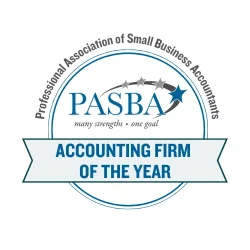Accounts payable is a crucial aspect of any business, big or small. It refers to the amount of money a company owes its suppliers for goods or services received on credit. In simpler terms, accounts payable is the money a company needs to pay for its purchases and expenses. This can be a challenge for businesses to manage effectively, as it involves keeping track of various invoices and payments. The following guide dives deeper into the concept of accounts payable, its importance in business finances, and how to manage it effectively.
What Is The Role Of Accounts Payable In The Financial Structure?
Accounts payable is a liability on a company’s balance sheet, indicating the amount of money that needs to be paid to suppliers and vendors. It plays a vital role in the financial structure of a business as it represents the short-term debt owed by the company. Proper accounts payable management is essential for maintaining good relationships with suppliers, managing cash flow, and keeping track of expenses. It also affects a company’s financial ratios, such as the current ratio and working capital, which are used to assess its financial health.
The Accounts Payable Process
The accounts payable process involves receiving invoices from suppliers, verifying the accuracy of the invoices, and making payments within the agreed-upon terms. This process may vary from company to company, but it typically includes the following steps:
- Receive goods: A company receives goods or services from a supplier on credit.
- Check goods: The company checks and confirms the received goods or services.
- Receive invoice: The supplier sends an invoice for the goods or services, specifying the amount owed and payment terms.
- Verify invoice: The company verifies the accuracy of the invoice against its records, such as purchase orders and receipts.
- Authorize invoice: Once verified, the company records the invoice in its accounting system and authorizes the payment.
- Make payment: The company makes the payment within the agreed-upon terms, usually within 30 days.
What Is Accounts Payable (AP) Invoicing?
AP invoicing refers to the process of recording, verifying, and paying invoices from suppliers. It is an essential part of the accounts payable process and involves numerous steps to ensure that payments are accurate and timely.
The Invoice Management Process
The invoice management process is a crucial aspect of accounts payable as it ensures that all invoices are recorded, verified, and paid accurately and on time. Without an effective process in place, organizations may experience delays in payments, disputes with suppliers, or even missed payments. This can lead to strained supplier relationships and impact the company’s financial health.
Having a tried and tested invoice management process in place is essential for businesses to stay organized and maintain good relationships with suppliers. It also helps in avoiding any errors or discrepancies that may occur during the payment process.
What Are Examples Of Payable Expenses?
There are various examples of payable expenses, including but not limited to:
- Raw materials or inventory purchased from suppliers
- Services provided by contractors or consultants
- Rent or utilities for office space
- Insurance premiums
- Advertising and marketing services
These payable expenses are essential for the day-to-day operations of a business and contribute to the overall cost of doing business.
Accounts Payable Vs Accounts Receivable
Accounts payable and accounts receivable are two important aspects of a company’s financial structure. While accounts payable refers to the money a company owes its suppliers, accounts receivable refers to the money customers owe the company for goods or services provided on credit.
In simpler terms, accounts payable is what a company owes, while accounts receivable is what it is owed. Both these aspects are crucial for managing cash flow and maintaining a healthy financial structure.
What Is The Relationship Between Payables And Cash Flow?
Effective management of accounts payable has a direct impact on a company’s cash flow. This is because accounts payable represents the liability or debt that needs to be paid in the near future. If a company has a large number of accounts payable, it may face challenges in managing its cash flow and making timely payments.
On the other hand, by effectively managing accounts payable and staying on top of payment terms, businesses can ensure smooth cash flow and avoid any disruptions in their operations. It is important to maintain a healthy balance between timely payment and adequate cash reserves to ensure effective cash flow management.
Common Challenges In Managing Payables
Managing your accounts payable effectively can come with its own set of challenges. Understanding what these challenges are is crucial for maintaining good relationships with suppliers, managing cash flow, and keeping track of expenses. Some common challenges businesses may face in managing their accounts payable include:
Physical Document Storage
One of the most common challenges in managing payables is storing physical documents such as invoices, purchase orders, and receipts. This traditional method of paper-based documentation can result in lost or misplaced files, making it difficult to retrieve them when needed. Moreover, this process also takes up valuable office space and requires time-consuming manual data entry.
Missing Or Duplicate Invoices
One of the major issues with physical document storage is the risk of missing or duplicate invoices. This can occur due to human error, such as misfiling or losing documents, or when there is no proper system in place for tracking invoices.
Missing or duplicate invoices can cause delays in payments and disputes with suppliers, leading to strained relationships and potential financial losses for the company.
Manual Processing
Another challenge in managing accounts payable is the manual processing of invoices. Manual processing refers to the traditional method of manually entering invoice data into a system, verifying it, and creating payment records. Invoicing includes tasks such as data entry, routing for approval, and issuing payments.
Manual processing is not only time-consuming but also prone to errors, which can lead to incorrect or delayed payments. It can also be challenging to track the progress of invoices and can lead to payment delays if there are any bottlenecks in the approval process.
Inaccurate Data
Entering invoice data into the system manually requires a considerable amount of time and effort and increases the chances of human error. Inaccurate data entry can also make it challenging to track expenses and maintain accurate financial records, making it difficult for businesses to analyze their spending patterns and make informed decisions.
Theft And Fraud
Physical document storage and manual processing also increase the risk of theft or fraud. Paper invoices can be easily manipulated, leading to potential financial losses for the company. Moreover, without proper checks and balances in place for invoice approval and payment processing, businesses may fall victim to fraudulent activities, resulting in significant financial setbacks.
Problems Scaling
As businesses grow, so does their volume of payables. This can put a strain on resources and make it challenging to manage accounts payable effectively.
Many small or medium-sized businesses face difficulties in employing more staff to handle the increasing number of invoices and payments. This can lead to bottlenecks in the process and delays in payment processing, potentially damaging relationships with suppliers and causing disruptions in operations.
Manage Your Accounts With J.R. Martin & Associates
At J.R. Martin & Associates, we understand the challenges businesses face in managing their accounts payable and offer comprehensive solutions to help streamline this process. Our team provides tailored accounts payable support to clients, ensuring efficient management of payables while minimizing errors and delays.
We use an invoice imaging and storing solution that eliminates the need for manual processing of paper-based invoices. This not only reduces physical storage needs but also improves accessibility, making it easier to retrieve and track invoices when needed. By implementing this solution, businesses can improve vendor relationships, as invoices are processed faster and payments are made on time.
Moreover, our team is well-versed in the latest technologies and industry best practices, ensuring accurate and reliable accounts payable management. With J.R. Martin & Associates, businesses can rest assured that their payables are in safe hands.
Secure Your Financial Future. Manage Your Payables Efficiently.
In today’s fast-paced business environment, managing your accounts payable efficiently is crucial for maintaining healthy cash flow and building strong relationships with suppliers. By addressing common challenges and adopting streamlined processes, you can ensure the smooth operation of your payables.
At J.R. Martin & Associates, we offer tailored solutions to help businesses effectively manage their accounts payable and secure their financial future. Don’t let challenges in managing your payables keep you from reaching your business goals. Contact us today and see how we can support your accounting needs.
Ready to boost your financial management? Let us streamline your payables so you can ensure effective invoicing and cash flow management.



